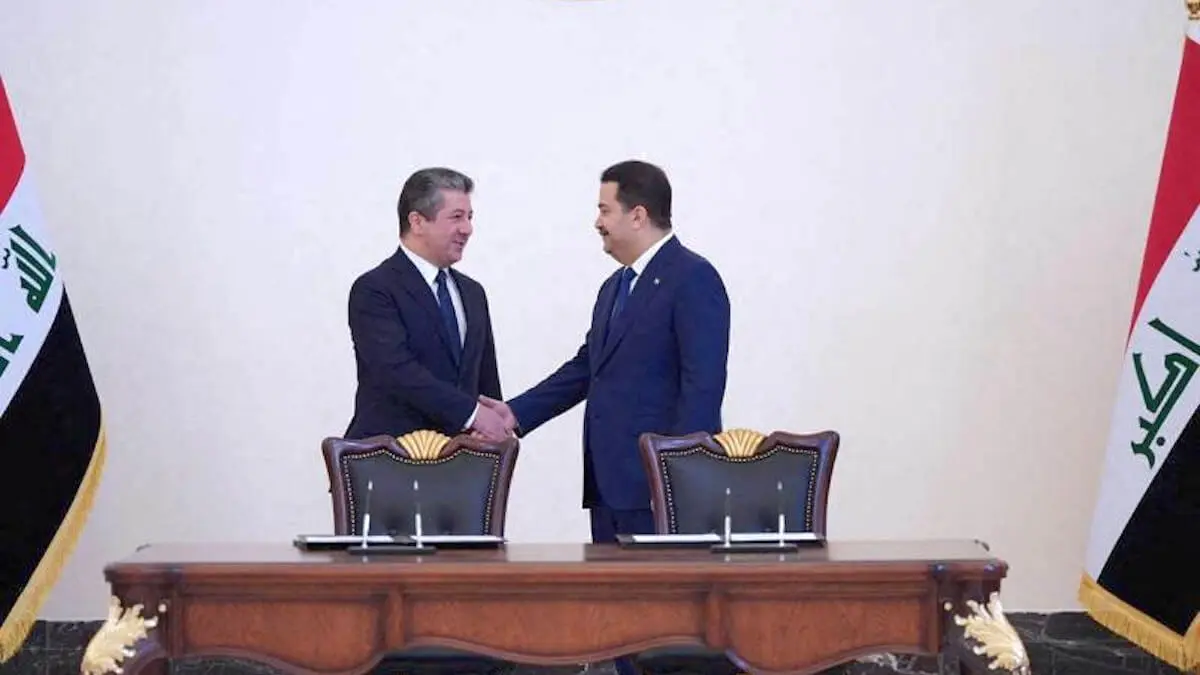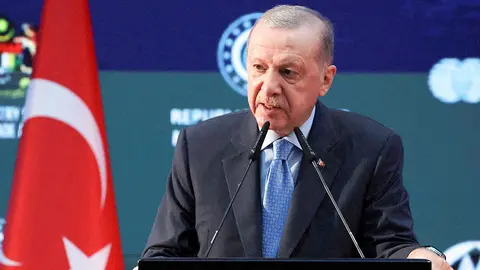Baghdad and Erbil: a fragile partnership under strain

Once again, disputes surface in the Iraqi political scene, with the tense relationship between Baghdad and Erbil at its heart. This relationship began as a partnership based on hope in 2005, when the Kurds willingly participated in the establishment of a new Iraq, believing that federalism and the constitution would be guarantees for rights for which they had long fought and sacrificed their lives.
However, these hopes gradually collided with a complex political reality, the first signs of which appeared in 2007 when the passage of the federal oil and gas law faltered. This law, stipulated in the Iraqi constitution (Articles 111 and 112), was supposed to regulate the relationship between the central government and the oil-producing provinces, including the Kurdistan region. Since then, oil has shifted from a shared resource to a major point of contention, with politics and law intertwined, and interests so complex that they seem impossible to resolve.
After 2014, the crisis took a sharp turn when the federal government halted remitting the region’s share of the budget, citing Erbil’s failure to deliver oil revenues to the “SOMO” company. Then came the most explosive moment in 2017, when the Kurdistan Region held an independence referendum, a move that reflected despair over the possibility of an understanding with Baghdad. The federal response came swiftly, both militarily and politically: the recapture of Kirkuk, the complete cutting off of the budget, and even measures that directly affected citizens.
Nevertheless, doors for dialogue remained open. Since taking office, the Prime Minister of the Kurdistan Regional Government, Masrour Barzani, has attempted to break the cycle of isolation. His most recent initiative was a visit to Washington in May 2025, which resulted in the signing of two investment contracts with American companies, HKN Energy and WesternZagros, in a move aimed at developing the gas infrastructure in Kurdistan, which would positively impact the entire Iraqi energy system.
However, the surprising paradox came after his return from the visit, when the Iraqi ministry of finance announced the cessation of salary payments to the region’s employees in a statement issued on May 21, 2025. The timing was not coincidental; it seemed more like a political message rather than a financial one. Does investing in local gas now count as an overstep? And why are the salaries of hundreds of thousands of employees used as a tool in the political game of arm-twisting?
These questions lead us to the core of the crisis: how did the Kurds, who were a fundamental partner in toppling the previous regime before 2003, come to be treated, at times, as adversaries after 2005? And why do some actors in Baghdad insist on managing the relationship with a logic of dominance rather than partnership?
The disagreements between Baghdad and Erbil are no longer just a Kurdish issue, but have become a matter that touches the very nature of the Iraqi state itself. Article 115 of the constitution grants priority to regional laws in the case of conflict with federal laws, unless they fall under the exclusive powers of the federal government. Additionally, Article 112 gives the oil-producing provinces (including Basra, Dhi Qar, and Maysan) the right to participate in the management of oil, meaning any solution cannot be limited to just Kurdistan, but must be national and inclusive.
Today, the Kurdish citizen is paying the price of a struggle he did not choose, and just as the region’s employees are deprived of their salaries from time to time, trust is being drained among the country’s components, and the rift widens with each new crisis.
In conclusion, reforming the relationship between Baghdad and Erbil does not begin with financial decisions, but with sincere political will that acknowledges partnership, respects the constitution and restores the concept of citizenship. Countries are not built through exclusion or collective punishment, but through dialogue, transparency and justice. If politics is the art of the possible, then what is possible today, despite all the wounds, is to build an Iraq where the Kurdish citizen no longer feels like a guest, nor the Baghdadi as a guardian.
Article published in The Arab Weekly


